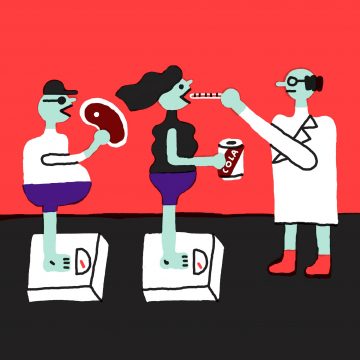David S. Ludwig and Steven B. Heymsfield in the New York Times:
 Most diet trials in the best journals fail even the most basic of quality control measures. That’s the finding of a study by us published today on JAMA Network Open.
Most diet trials in the best journals fail even the most basic of quality control measures. That’s the finding of a study by us published today on JAMA Network Open.
Investigators receiving funding for any clinical trial from the National Institutes of Health must register in advance what they plan to test, among other design features, to ensure that the data are fairly analyzed. Comparing the original registries with the final published studies, we found that diet trials in the past decade were about four times as likely as drug trials to have a discrepancy in the main outcome or measurement — raising concern for bias.
This quality-control problem of diet trials in comparison to ones on pharmaceuticals leads to a bigger issue: underinvestment in nutrition research and in how we tackle the mysteries of a healthy diet.
Although the problems with observational studies have received much attention (“Association doesn’t prove causation,” as scientists say), clinical trials can suffer from equally important limitations.
More here.
